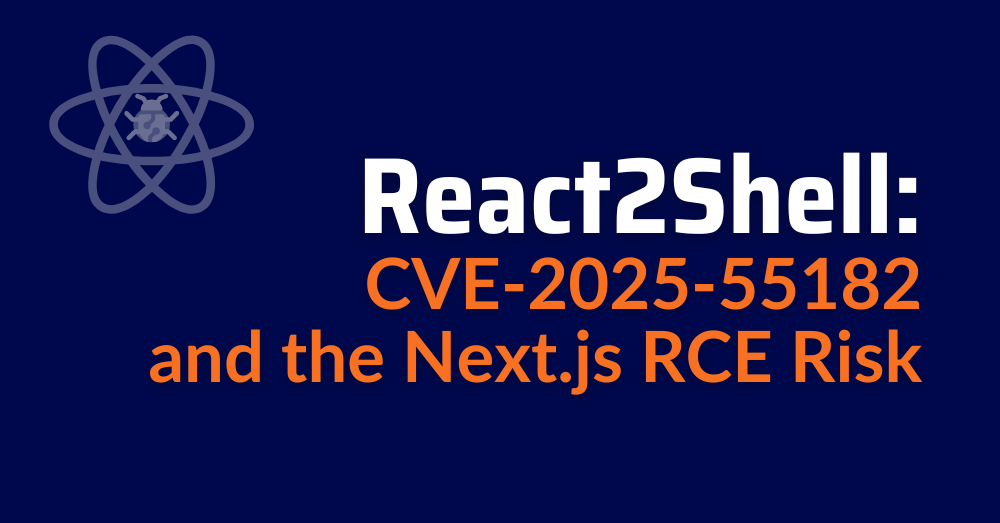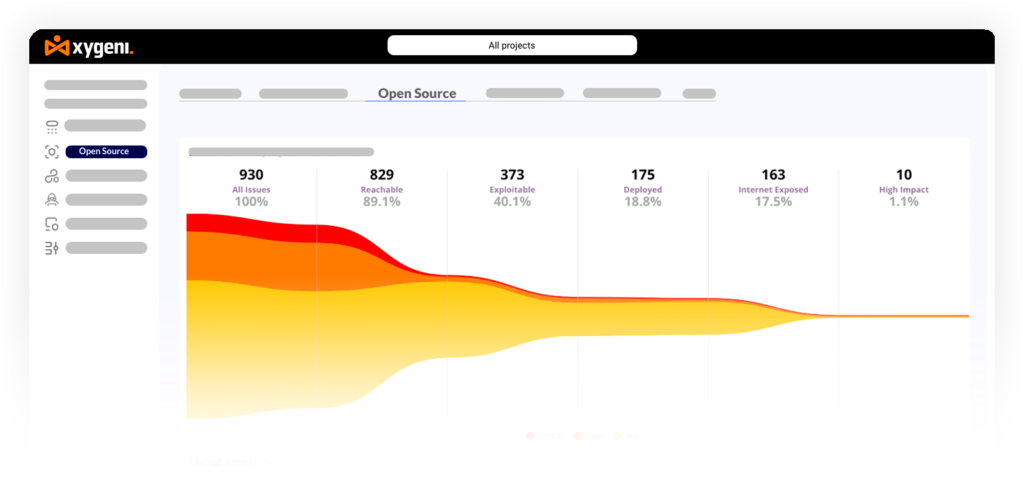How to avoid malware is one of the most important challenges for developers and security teams today. With more than 560,000 new threads detected every day, having a strong malware prevention strategy is no longer optional. Open-source software and CI/CD pipelines bring speed and flexibility, but they also open the door to hidden risks. To stay protected, you need continuous monitoring, regular CVE check routines, and the right malware prevention software that can block malicious packages before they reach production. In this guide, we’ll share practical steps and tools that help you prevent malware in both open-source components and development pipelines.
How to Avoid Malware: Key Steps
| Step | Action | Why It Matters |
|---|---|---|
| 1 | Keep software and systems updated | Closing known vulnerabilities reduces malware entry points. |
| 2 | Use trusted sources only | Downloading from official repositories prevents exposure to tampered packages. |
| 3 | Enable real-time malware detection | Stops threats before they spread in your environment. |
| 4 | Scan open-source dependencies regularly | Detects hidden malware in libraries and third-party code. |
| 5 | Secure CI/CD pipelines | Blocks malware from entering during builds and deployments. |
| 6 | Run CVE checks and patch quickly | Reduces risk from publicly disclosed vulnerabilities. |
| 7 | Train developers and teams | Awareness lowers the chance of falling for phishing or injecting unsafe code. |
1. Adopt Real-Time Malware Detection
You can’t afford to wait until a vulnerability becomes a full-blown incident. Traditional security measures, which often depend on identifying known vulnerabilities, fall short in a world where zero-day threats emerge daily. To stay ahead, integrate real-time threat detection into your software development pipeline. Xygeni’s Early Warning System actively monitors public repositories, immediately quarantining suspicious packages before they can enter your environment. This proactive approach doesn’t just react to threats, it stops them in their tracks, focusing on malware prevention.
The speed and complexity of today’s malware mean you must stay proactive. In fact, using real-time detection helps you stop threats before they cause damage. As a result, your development environment stays secure from the very beginning, and you strengthen your strategy on how to avoid malware effectively.
2. Implement Comprehensive Vulnerability Management
Regularly auditing your open-source dependencies isn’t optional, it’s essential. One key method is through CVE checks, which scan your software for known vulnerabilities listed in the Common Vulnerabilities and Exposures (CVE) database. Each CVE entry identifies publicly disclosed issues, providing a critical resource for detecting and managing security risks.
However, CVE checks have limitations: delays in reporting, gaps in coverage, and a focus only on known vulnerabilities. This leaves blind spots where your software could still be exposed.
Xygeni’s Open Source Security Solution addresses these gaps by integrating extended vulnerability databases that go beyond CVE checks. This solution offers context-aware risk prioritization, evaluating vulnerabilities based on exploitability, business impact, and exposure. By focusing on the most critical threats, you ensure efficient use of resources, minimizing the risk of exploitation.
Quickly identifying and patching vulnerabilities improves malware prevention, helping you stay ahead of potential threats.
3. Strengthen CI/CD Pipeline Security
Security should never be an afterthought in your CI/CD pipelines. Instead, it must be built in from the very beginning. For example, you can automate security scans and add security gates at every stage of the development process. As a result, you stop insecure code before it ever reaches production. With Xygeni’s platform, you can set these controls easily, so only safe builds move forward.
In addition, gaining full visibility into your software’s composition helps you manage risks in a proactive way. Otherwise, serious vulnerabilities or compliance problems could slip through and put your systems at risk. Therefore, staying vigilant makes your malware prevention strategy stronger and also ensures reliable CVE checks. In the end, this is a key step in learning how to avoid malware in modern pipelines.
4. Maintain Full Visibility Over Your Open Source Components
You can’t secure what you can’t see. Gaining full visibility into your open-source components, including identifying outdated dependencies and potential licensing issues, is crucial. Xygeni’s Open Source Security solution provides comprehensive scanning and detailed insights, allowing you to manage risks associated with OSS effectively.
Full visibility into your software’s composition allows you to manage risks proactively. Without it, critical vulnerabilities or compliance issues could slip through the cracks, exposing your organization to non necessary risks. Staying vigilant in this way strengthens your malware prevention strategy.
5. Ensure Compliance with Emerging Regulations
Regulations like the NIS2 Directive and DORA are changing the landscape of cybersecurity compliance. To stay ahead, implement security measures that align with these standards. Xygeni’s solutions support continuous monitoring, risk management, and vulnerability disclosure reporting, ensuring you meet regulatory requirements while maintaining a strong security posture.
Compliance isn’t just about avoiding fines—it’s about ensuring operational resilience. As regulations tighten, especially around third-party software and supply chain security, robust measures protect your organization from legal and operational risks. This includes regular CVE checks to stay compliant and secure.
How to Avoid Malware in Open Source with Xygeni’s Early Warning System
To give you a clear picture of how Xygeni’s Early Warning System works, we’ve created an infographic that breaks down each stage of the process. This visual guide illustrates how our solution protects your software supply chain from the moment a suspicious package is detected to when it’s quarantined and analyzed.
How to Avoid Malware in Open Source with Xygeni’s Early Warning System
To give you a clear picture of how Xygeni’s Early Warning System works, we’ve created an infographic that breaks down each stage of the process. This visual guide illustrates how our solution protects your software supply chain from the moment a suspicious package is detected to when it’s quarantined and analyzed.
Xygeni’s Early Warning System is more than just detection, it works as advanced malware prevention software designed for open-source environments. By combining continuous monitoring with automated blocking and validation, it gives DevSecOps teams proactive defense against hidden threats.
How our Early Warning System operates:
- Continuous Monitoring: Xygeni continuously scans public repositories like NPM, PyPI, and Maven. We don’t wait for a threat to surface; we actively monitor new package publications to catch potential risks immediately.
- Block Known Malware Dependencies: When Xygeni detects a known malware dependency, we immediately block it from entering your development environment. This proactive measure ensures that the threat is contained before it can cause any damage.
- Automatic Quarantine: If a suspicious package is identified but not yet confirmed as malware, Xygeni automatically quarantines it. This step isolates the potential threat before it can cause serious harm.
- Threat Validation: Our security experts analyze quarantined packages, validate threats internally, and collaborate with registries to confirm status. This prevents workflow disruption from false positives.
- Real-Time Alerts: Following any block or quarantine, Xygeni sends real-time alerts via email, Slack, or webhooks with detailed insights and recommended actions.
- Public Disclosure and Protection: After confirming and blocking a threat, Xygeni contributes to the wider community by disclosing details and preventing further spread.
Proactive Defense for Your Open Source Software
Open-source software brings many benefits, but it also comes with risks. To stay safe, you need a proactive approach that blocks threats before they can cause damage. With Xygeni, you get the right tools to stay ahead, so your open-source components remain secure, compliant, and ready to support your projects.
Avoid malware in open-source software with real-time detection, proactive prevention, and CVE checks. Don’t wait for a breach book a demo or test it for free today.
FAQs on How to Avoid Malware
1. How do malware scanners help in DevSecOps?
Malware scanners give DevSecOps teams visibility into code and dependencies before they reach production. In 2025, advanced malware prevention software goes beyond signatures. It uses behavior analysis, machine learning, and supply chain context to catch hidden threats. Combined with regular CVE check routines, scanners help developers stop malware at the earliest stage of the pipeline.
2. Can open-source packages be trusted?
Open-source is powerful, but not every package is safe. Attackers often publish malicious versions that look legitimate. To reduce risk, you should combine malware prevention software with automated checks. This includes monitoring public registries, validating package maintainers, and running continuous CVE checks. Trust is possible, but only with layered security.
3. What techniques are used in 2025 to avoid malware?
In 2025, new techniques make how to avoid malware more effective. These include real-time repository monitoring, exploitability-based vulnerability ranking, automated patch suggestions, and guardrails inside CI/CD. Together, they allow developers to move fast while staying safe.










